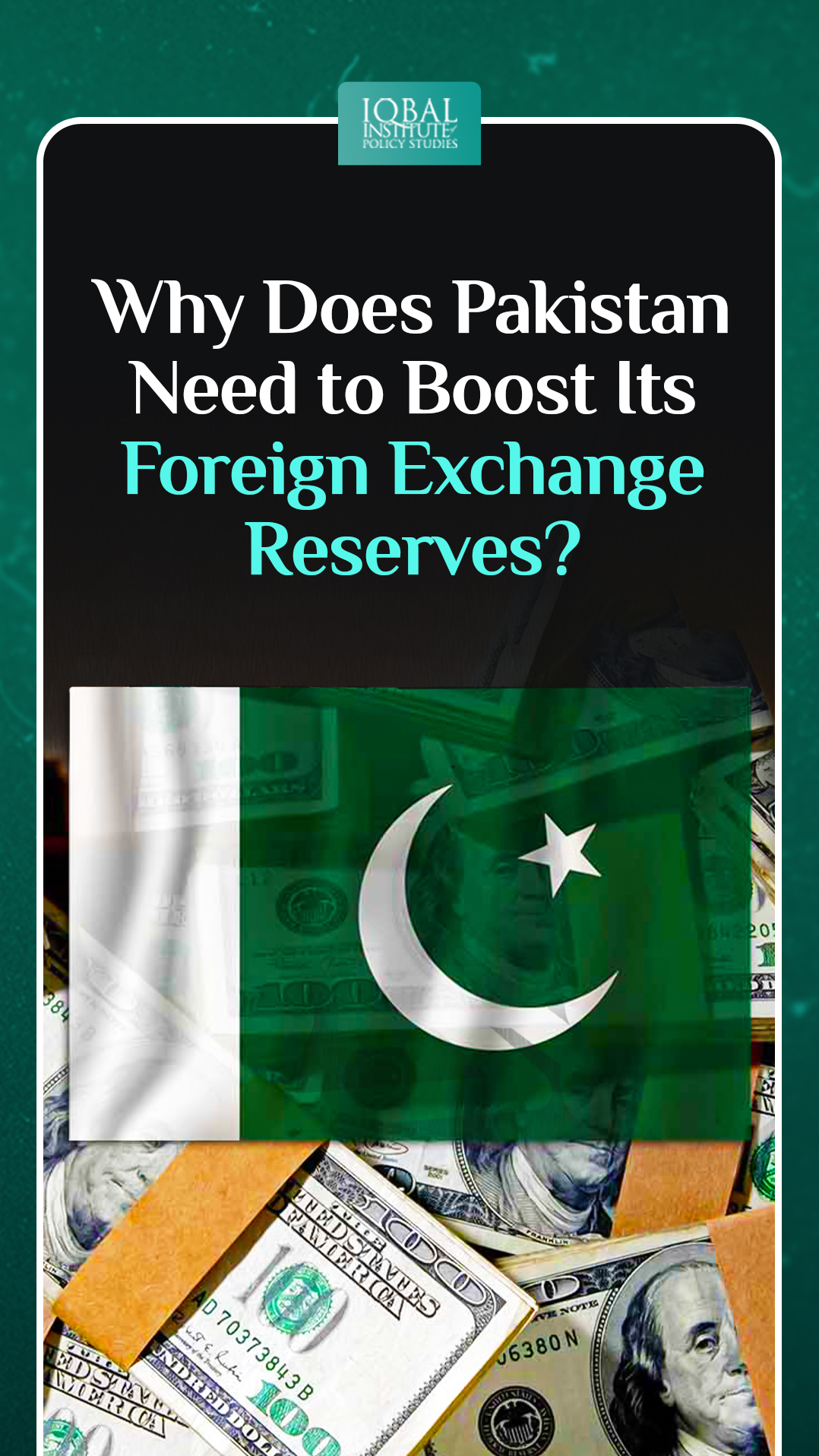Foreign exchange reserves are a critical component of any nation’s economic stability and development. They serve as a financial cushion, helping a country navigate through economic challenges and global uncertainties. For Pakistan, a nation with a history of economic ups and downs, boosting its foreign exchange reserves has never been more crucial. In this comprehensive blog, we will explore the reasons why Pakistan needs to bolster its foreign exchange reserves now more than ever.
Understanding Foreign Exchange Reserves
Foreign exchange reserves, often referred to as forex reserves, are a country’s holdings of foreign currencies and other assets like gold, Special Drawing Rights (SDRs), and reserve position in the International Monetary Fund (IMF). These reserves play a pivotal role in maintaining a country’s economic stability by facilitating international trade, covering external debts, and managing exchange rate fluctuations.
The Current State of Pakistan’s Foreign Exchange Reserves
As per the data of September 2021, Pakistan’s foreign exchange reserves were hovering around $27 billion, which was barely enough to cover two to three months of imports. This precarious situation has raised concerns among economists, policymakers, and international financial institutions alike. Pakistan’s economic landscape is characterized by several challenges, including a trade deficit, a significant external debt burden, and a history of exchange rate volatility. These factors, combined with the uncertainty of global economic conditions, made it imperative for Pakistan to focus on strengthening its foreign exchange reserves.
The country’s trade balance had been consistently negative, meaning that Pakistan was importing more than it was exporting. This trade deficit put pressure on the foreign exchange reserves, as a substantial portion of the reserves had to be used to pay for essential imports like oil, machinery, and food items. Furthermore, the external debt situation was a cause for concern, with a considerable portion of the foreign exchange reserves allocated to servicing these debts. The vulnerability of Pakistan’s economy to external shocks was evident, making it essential to build a more robust cushion of reserves. Given the interconnectedness of the global economy and the potential for unforeseen events, such as the COVID-19 pandemic, the need for bolstering foreign exchange reserves has become more pressing than ever.
Reasons Why Pakistan Needs to Boost Its Forex Reserves
Economic Stability and Confidence
Maintaining an adequate level of foreign exchange reserves instills confidence in investors and creditors. It signals that a country can meet its international financial obligations and ensures stability in the foreign exchange market.
Import Coverage
One of the primary purposes of forex reserves is to cover the cost of imports. Pakistan, being an import-dependent nation, needs a substantial reserve to ensure the uninterrupted supply of essential goods, including energy resources, machinery, and food items.
External Debt Servicing
Pakistan has a substantial external debt burden, with repayments and interest payments consuming a significant portion of the country’s foreign exchange earnings. A robust reserve buffer is crucial to meet these obligations without resorting to additional borrowing.
Exchange Rate Stability
Forex reserves help stabilize exchange rates. When a country has sufficient reserves, it can intervene in the currency market to prevent the sharp depreciation of its currency, which can lead to inflation and increased debt servicing costs.
Attracting Foreign Investment
Investors are more likely to invest in countries with stable economic conditions. A strong reserve position enhances Pakistan’s attractiveness to foreign investors, promoting economic growth and job creation.
Crisis Preparedness
The global economic landscape is fraught with uncertainties, from pandemics to geopolitical tensions. Adequate forex reserves act as a financial safety net, enabling Pakistan to respond effectively to unexpected crises.
Reducing Reliance on External Borrowing
By boosting forex reserves, Pakistan can reduce its dependence on external borrowing, which often comes with high interest rates and strict conditions imposed by international lenders.
Trade Balance Improvement
A robust reserve position can help Pakistan negotiate better terms of trade with its international partners, potentially leading to improved trade balances.
Ways to Boost Forex Reserves
Promote Exports
Encouraging export-oriented industries and diversifying export markets can increase foreign exchange earnings.
Foreign Direct Investment (FDI)
Attracting FDI through investor-friendly policies and regulatory reforms can bring in much-needed foreign currency.
Bilateral Agreements
Enter into trade and investment agreements with friendly countries to boost economic ties, which can result in increased foreign exchange inflows.
Remittances
Continue to facilitate and incentivize remittances from overseas Pakistanis, who are a significant source of foreign exchange.
Fiscal Discipline
Maintain sound fiscal policies to reduce the budget deficit and control inflation, which can indirectly support forex reserves.
IMF and Multilateral Support
Engage in constructive negotiations with international institutions like the IMF to secure financial assistance and support programs aimed at stabilizing the economy.
Conclusion
In a world characterized by economic uncertainty, having robust foreign exchange reserves is not just a matter of prudent financial management; it’s a lifeline for a country like Pakistan. As of my last update, Pakistan’s efforts to boost its forex reserves were already underway, but the journey is far from over. The government, in collaboration with the private sector, must continue to implement policies that enhance economic stability, attract foreign investment, and ensure that Pakistan is better prepared to weather global economic storms. By doing so, Pakistan can secure its economic future and offer its citizens a brighter and more prosperous tomorrow.
This article is written by Radma Nouman. Radma is a research analyst at the Iqbal Institute of Policy Studies (IIPS).



Leave a Reply